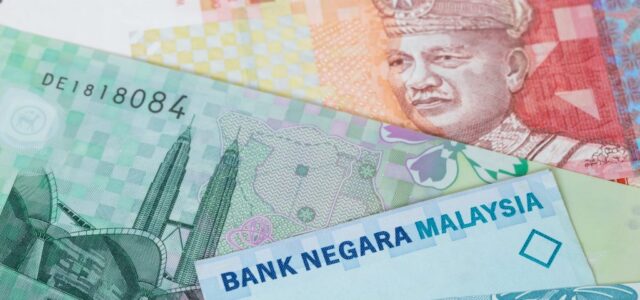Malaysian Ringgit rebounds on Fed rate cut hopes
malaysian-ringgit-rebounds-on-fed-rate-cut-hopes
#Malaysian #Ringgit #rebounds #Fed #rate #cut #hopes,
MALAYSIA: For months, Malaysians have been watching the ringgit’s struggles against the US dollar with a mix of concern and resignation. But this week, there was finally a breath of relief. On Tuesday, the currency staged a rebound, closing higher across the board on the back of optimism that the US Federal Reserve (Fed) might cut interest rates as early as September.
According to Free Malaysia Today, citing Bernama, the ringgit rose to 4.2320/4.2360 against the US dollar at 6 p.m., up from last Friday’s close of 4.2420/4.2480. The improvement extended beyond the greenback; the ringgit edged up to 2.8657/2.8686 against the yen, 4.9269/4.9316 against the euro, and 5.6933/5.6987 against the British pound.
Closer to home, it also gained against regional peers. Most notably, it strengthened against the Singapore dollar, closing at 3.2936/3.2973 compared with last week’s 3.3014/3.3064.
The Fed factor
Bank Muamalat Malaysia Bhd’s chief economist, Afzanizam Abdul Rashid, told Bernama that investors are watching the Fed closely. The US Dollar Index (DXY) slipped by 0.03% to 98.152 points, reflecting cautious optimism that US rates might soon come down.
“Markets appear to be divided as the US data began to flash a weakening trend when the non-farm payrolls came in below expectations and the prior month’s data saw a significant downward revision,” Afzanizam explained.
Still, he pointed out that Fed officials are sending mixed signals. “On the other spectrum, one might think the Fed could be behind the curve in providing monetary support to the economy,” he said. Until there’s clarity, he added, “indecisiveness has led to a tight range in DXY.”
What it means for Malaysians
For the average Malaysian, a stronger ringgit may not feel like a windfall, but it does make a difference. Imported items, from smartphones to cooking oil, become slightly less expensive to bring in. Families planning overseas holidays may find flight tickets and hotel stays a bit easier to stomach. Even students abroad who rely on money from home get a little more breathing room when exchange rates tip in their favour.
In short, while the movements may look like decimals on a chart, they translate into very real lifestyle impacts.
Why Singaporeans should care
For Singaporeans, the ringgit’s rebound matters too, particularly for the millions who cross the Causeway every year. Johor Bahru has long been Singapore’s “weekend backyard,” with cheaper food, shopping, and entertainment. A weaker ringgit has meant stretching every Singapore dollar further: a plate of nasi lemak for RM10 feels like just S$3, a haircut for RM25 costs less than S$9, and even a full day of movies, massages, and groceries in Johor can come in cheaper than a single dinner in Singapore.
With the ringgit firming up, these bargains won’t disappear overnight, but the gap does narrow. A few cents here and there might not matter for one trip, but for retirees who hop across weekly, or families who do their grocery runs in JB, the difference adds up.
At the same time, a stronger ringgit can be good news for Singapore in the long run. It shows greater stability and confidence in Malaysia’s economy, which is significant given the developments of the Johor-Singapore Special Economic Zone (JS-SEZ), which is projected to improve economic relations between the two. For Singaporean businesses eyeing expansion, Johor offers more than just cheap land — it offers a neighbour whose economy is steady and investment-friendly.
Looking ahead
Whether the rebound holds depends heavily on what happens in Washington. If the Fed delivers a rate cut in September, emerging market currencies like the ringgit could be in for more sustained recovery. If not, volatility may return.
But for now, the ringgit’s bounce is a welcome sign on both sides of the Causeway. For Malaysians, it means relief from the squeeze of a weaker currency. For Singaporeans, it means their favourite JB weekend trips might cost just a little bit more — but it also means a healthier neighbour, and that’s a win in the bigger picture.
Read also: Johor launches RM2 billion Innexus Industrial City, pledges 37,000 jobs with pro-investment push
